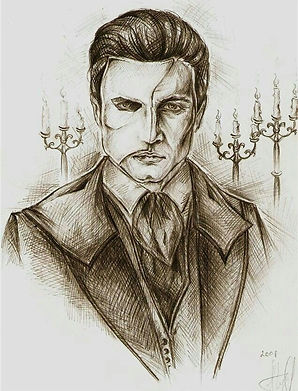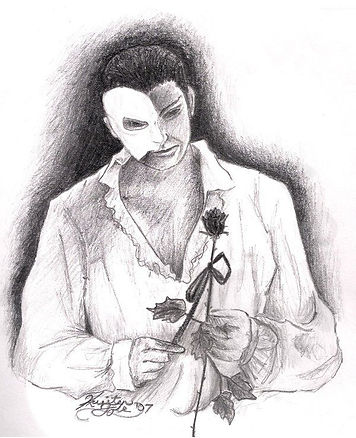The phantom

Erik is the antagonist of the novel and a tragic, violent, and ultimately mysterious figure.
Although the narrator asserts that Erik is a human being, he shows attributes that recommend he may be more powerful than simply human: his appearance as a skeleton covered in rotten skin, his unprecedented singing capacities, and his ability for ventriloquism which permits him to extend his voice anyplace he pleases, making it seem as though he is in various places at once.

As the Phantom always wears a black cape, which adds a sense of mystery to his persona, symbolic of hiding who/what he really is. Half of his face is deformed, which gives rise to the mask most people think of when they recall The Phantom. He covers this part of the face using the mask because he believes that this will ostracize him, although throughout the piece it becomes obvious this is the least influential factor that causes people to fear him.
Although seen as a sublime, irresistible singer capable of expressing his emotions in heart-wrenching ways, Erik has experienced childhood in an environment marked by rejection and manipulation because people are so horrified by his appearance and demonstrates violent himself.
Erik is in love with Christine’s musical abilities. But the narcissism inherent to his character drives him to dominate and mold her abilities to be a reflection of his own grandiose idea of himself.